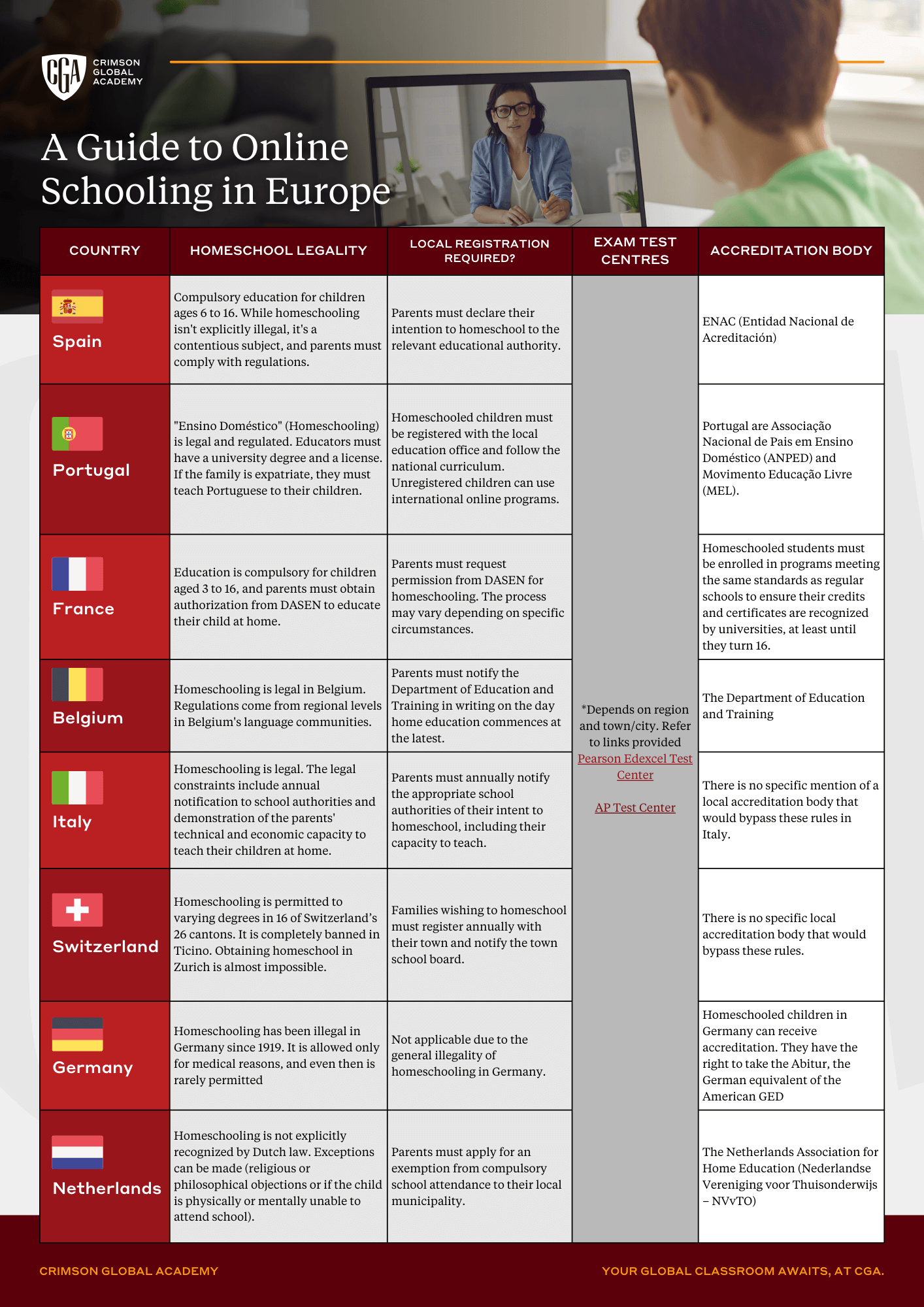When School Isn’t Meeting Your Child’s Needs – There Is Another Way
Read now/f/90801/1920x600/67500c6d54/cga-blog-bannern-danilo.webp)
/f/90801/1920x600/bd9a7150ad/cga-blog-banners-1-1.png)
In recent years, the educational landscape across Europe has seen a significant shift towards online schooling and homeschooling. This transformation has made alternative learning methods an integral part of the educational ecosystem. At CGA we are committed to making online education seamless for families worldwide, providing flexibility, freedom and academic rigor from the comfort of their homes.
In this blog we will demystify the legalities, challenges, and support systems of online schooling country by country, presenting a clear, concise guide for families navigating this path.
In Spain, homeschooling occupies a grey area, lacking explicit legal recognition but not entirely forbidden. Parents face the challenge of providing education without government financial support, though numerous homeschooling associations offer resources and advocacy. Regional variations in regulation necessitate careful planning and adherence to local educational guidelines.
Portugal offers a supportive environment for "Ensino Doméstico," with legal frameworks in place. Educators must possess a university degree and teaching license, and children are required to take exams at the end of each school cycle. Associations like CNAPEF and ALE play vital roles in providing resources and support to homeschooling families.
French law mandates compulsory education from ages 3 to 16, with homeschooling requiring authorization from DASEN and adherence to strict academic inspections. Homeschooling in France is structured to ensure educational progress, with parents needing to navigate a detailed authorization process and maintain high educational standards.
Homeschooling in Belgium is characterised by its regional diversity, legally allowed but governed by the linguistic and cultural specifics of each region. Parents must notify the Department of Education and Training and meet minimum education requirements, reflecting Belgium's commitment to flexible yet regulated homeschooling options.
Italy recognizes homeschooling as a constitutional right, yet it demands strict adherence to the national education system's standards. Despite a lack of specific homeschooling accreditation bodies, the growth in homeschooling popularity post-COVID-19 indicates a shifting perspective towards alternative education.
Switzerland presents a canton-specific approach to homeschooling, with legal permission varying significantly across its 26 cantons. The decentralised educational system requires parents to navigate local regulations carefully, ensuring compliance with cantonal requirements for homeschooling.
Germany upholds one of Europe's strictest stances against homeschooling, with compulsory school attendance enforced and homeschooling illegal except under rare circumstances. The legal framework offers little flexibility, presenting significant challenges for families seeking alternative educational routes.
In the Netherlands, homeschooling is tightly regulated, with legal exemptions available under specific conditions. The Dutch framework mandates school attendance, allowing homeschooling primarily for those with philosophical or religious objections to traditional schooling.
The landscape of online schooling in Europe is as diverse as its countries, presenting families with various challenges and opportunities. CGA is here to support families in this journey, offering an online platform that meets international standards and helps navigate the intricacies of local regulations. Whether it's providing guidance on compliance with local regulations, facilitating standardised testing, or offering a diverse curriculum tailored to individual needs, CGA provides families with the resources they need to make informed choices about their children's education.
Discover how CGA can transform the online schooling experience for your family? Speak with one of our Academic Advisors today for personalised support.

